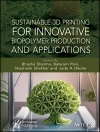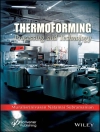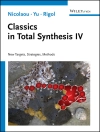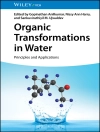The first comprehensive and authoritative introductory work on biophotonics
Biophotonics involves the use of photonics, the technology of generating and harnessing light and other radiant energy, for biological purposes. In fact, four major technologies – lasers, photonics, nanotechnology, and biotechnology – are integrated into biophotonics, placing it at the intersection of physical, biological, and engineering sciences. Introduction to Biophotonics provides a much-needed primer on this emerging discipline.
Paras Prasad’s text provides a basic knowledge of a broad range of topics so that individuals in all disciplines can rapidly acquire the minimal necessary background for research and development in biophotonics. The book serves as both a textbook for education and training as well as a reference book that aids research and development of those areas integrating light, photonics, and biological systems. Each chapter contains a topic introduction, a review of key data, and description of future directions for technical innovation. Introduction to Biophotonics covers the basic principles of
- Optics
- Optical spectroscopy
- Microscopy
Along with applications to:
- Biochemistry
- Biology
- Health sciences
Each section also includes illustrated examples and review questions to test and advance the reader’s knowledge. Sections on biosensors and chemosensors, important tools for combating biological and chemical terrorism, will be of particular interest to professionals in toxicology and other environmental disciplines. Introduction to Biophotonics proves a valuable reference for graduate students and researchers in engineering, chemistry, and the life sciences.
Inhoudsopgave
Preface xv
Acknowledgments xvii
1. Introduction 1
2. Fundamentals of Light and Matter 11
3. Basics of Biology 50
4. Fundamentals of Light-Matter Interactions 92
5. Principles of Lasers, Current Laser Technology, and Nonlinear Optics 129
6. Photobiology 159 6.1 Photobiology—At the Core of Biophotonics 160
7. Bioimaging: Principles and Techniques 203
8. Bioimaging: Applications 255
9.Optical Biosensors 311
10.Microarray Technology for Genomics and Proteomics 357
11. Flow Cytometry 390
12. Light-Activated Therapy: Photodynamic Therapy 433
13. Tissue Engineering with Light 464
14. Laser Tweezers and Laser Scissors 482
15.Nanotechnology for Biophotonics: Bionanophotonics 520
16. Biomaterials for Photonics 545
References 569
Index 573
Over de auteur
PARAS N. PRASAD, Ph D, is the SUNY Distinguished Professor of Chemistry, Physics, Electrical Engineering, and Medicine, the Samuel P. Capen Chair, and the Executive Director of the Institute for Lasers, Photonics, and Biophotonics at the University of Buffalo. Professor Prasad received his BS and MS at Bihar University in India, and his Ph D at the University of Pennsylvania. He completed his postdoctoral studies at the University of Michigan, and has been recognized as an Alfred P. Sloan Fellow and Guggenheim Fellow. Professor Prasad teaches biophotonics at the University of Buffalo and is also a special lecturer for biophotonics courses at the SPIE.












